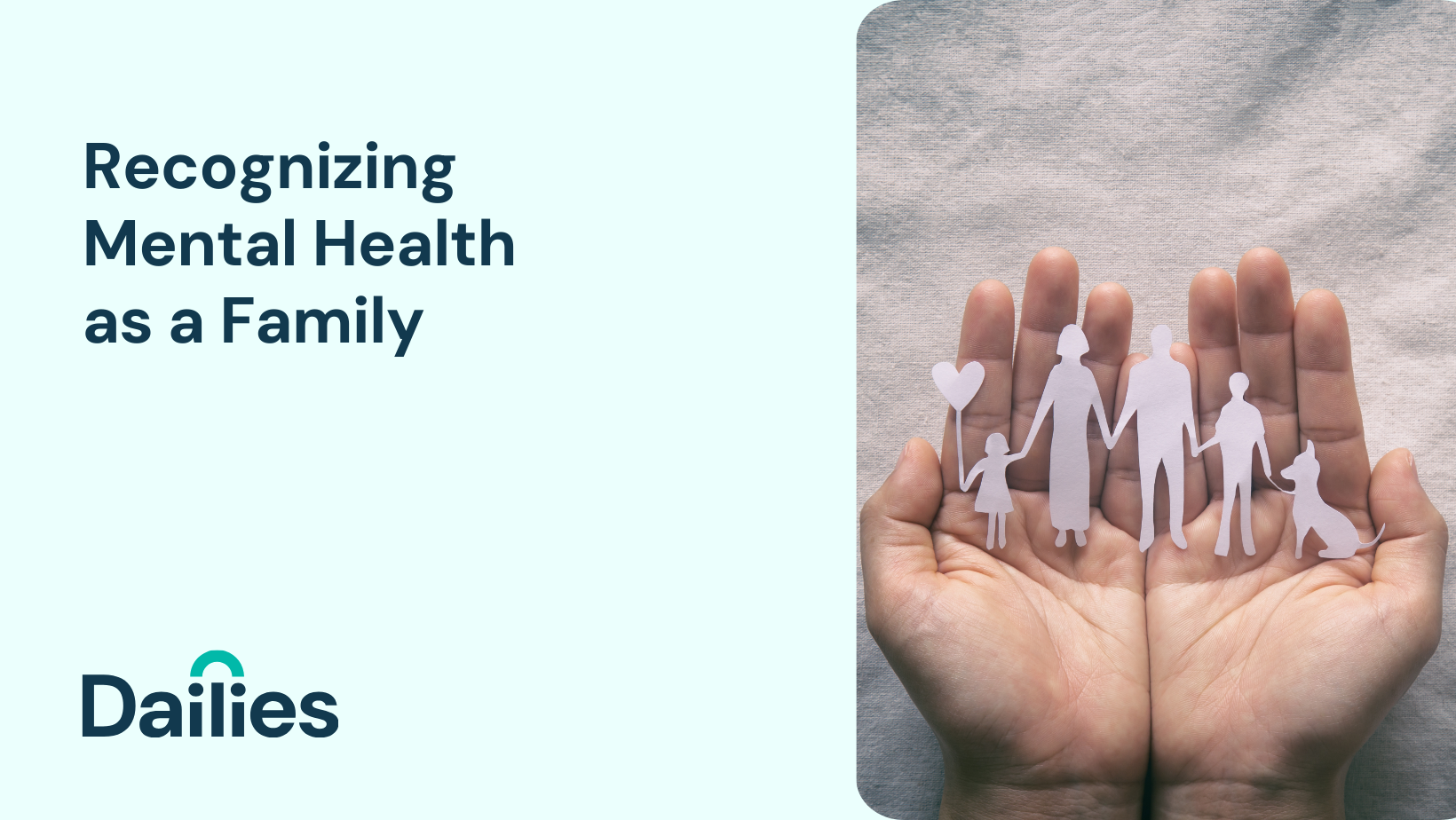Written by
Jillian Burger Read all posts by this author
Recognizing Mental Health as a Family
Recognizing Mental Health as a Family
World Mental Health Day, observed on October 10th, is a special time to bring attention to something we all share: our mental health. While conversations about mental health can sometimes feel daunting, this day offers an opportunity for families to come together, talk openly, and support one another in fostering positive mental well-being.
Creating a Safe Space for Conversations
One of the most important things we can do as a family is to create an environment where everyone feels comfortable talking about their feelings. Whether it’s a tough day at school, stress from work, or just feeling a bit down, it’s important that every family member knows it’s okay to express themselves.
Start by setting aside regular time to check in with each other. This could be during dinner, before bed, or even on a weekend walk. Ask open-ended questions like, “How are you really feeling today?” or “Is there anything on your mind?” These questions show that you’re genuinely interested in each other’s well-being.
For younger children, who might struggle to articulate their feelings, consider using books or drawing to help them express what’s going on inside. For teenagers, who often crave independence, remind them that you’re there to listen without judgment. The goal is to make these conversations a normal part of your family routine.
Promoting Positive Mental Health at Home
There are simple steps every family can take to promote positive mental health at home. Encouraging a balanced lifestyle is key. Make sure everyone is getting enough sleep, eating nutritious meals, and staying active. Physical health and mental health are closely linked, so taking care of one can greatly benefit the other.
Incorporate activities that reduce stress and bring joy. Family game nights, movie marathons, or even a backyard picnic can be wonderful ways to bond and lift spirits. For younger kids, playtime is essential not just for fun but for processing emotions and experiences. For older kids and adults, hobbies like reading, crafting, or cooking can be great outlets for stress.
It’s also important to talk about and practice mindfulness. This doesn’t have to be anything complicated—simple deep-breathing exercises, a few minutes of quiet time, or even a short family walk can help everyone reset and feel more centered.
Encouraging Help-Seeking Behavior
Sometimes, despite our best efforts, a family member might need more support than we can provide at home. It’s crucial to teach everyone, especially children, that it’s okay to ask for help. Normalize seeking professional support by talking openly about therapy, counseling, or speaking to a trusted adult outside the family. Let them know that reaching out for help is a sign of strength, not weakness.
If you notice changes in a family member’s behavior—such as withdrawal, changes in eating or sleeping habits, or loss of interest in activities they once enjoyed—it’s important to address these signs early. A gentle conversation can be the first step to getting the help they need.
Celebrating World Mental Health Day Together
World Mental Health Day is a great opportunity to start these conversations and create lasting habits. You might choose to spend the day doing a special family activity, learning more about mental health together, or even volunteering to support a mental health cause.
By making mental health a regular part of your family’s dialogue and routine, you’re not only helping to reduce the stigma but also ensuring that every family member knows they have a support system in place—every day of the year.
Let’s embrace World Mental Health Day together, and remember that taking care of our minds is just as important as taking care of our bodies.

